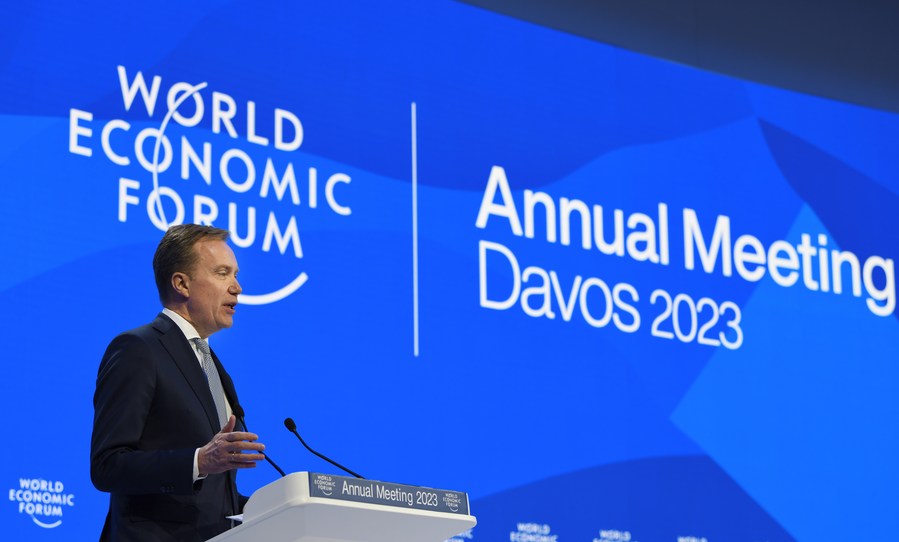Global economy facing 'turning point' amid challenges

CAUTION STILL NEEDED
The global economic outlook is not as bad as feared a couple of months ago, "but less bad doesn't quite yet mean good," Kristalina Georgieva, the managing director of the International Monetary Fund (IMF), told a closing panel at the WEF. "We have to be cautious."
Georgieva said headline inflation was heading down. China's optimized COVID-19 response is expected to boost global growth, with the IMF forecasting the Chinese economy will reach an estimated 4.4 percent, far outpacing global growth.
Signs of declining inflation, resilient consumer spending and strong labor markets, among others, suggest that growth could rebound in the short term.
"Be careful not to get on the other side of the spectrum, from being too pessimistic to being too optimistic. Stay in the middle of realism that seems to serve the world well," Georgieva said.
The WEF issued its Global Risks Report 2023, saying that conflict and geo-economic tensions have triggered a series of deeply interconnected global risks, with the cost of living crisis being the most significant short-term risk. At the same time, climate change and climate adaptation are the most considerable long-term concern.
Georgieva said that future growth prospects depend on how supply chain security is managed.
"If we diversify rationally, the cost of this adjustment would be low -- we put it down to 0.2 percent of GDP. If we trash trade that has been an engine for growth for so many decades, the cost can go up to 7 percent loss of GDP, equaling 7 trillion U.S. dollars," she said.
"Labor markets are holding firm so far, but interest rates are yet to bite, and if they bite more severely, then we can see unemployment going up. And it is very different for a consumer to have a cost of living crisis and a job than the cost of living crisis and no job," Georgieva said.
European Central Bank President Christine Lagarde was also cautious about the global economic outlook.
"The greatest tragedy in this moment would be if central banks were to lurch away from a focus on assuring price stability prematurely, and we were to have to fight this battle twice," said former U.S. Treasury Secretary Lawrence Summers.
Despite recent signs of improvement, "relief must not become complacency," Summers noted.





































